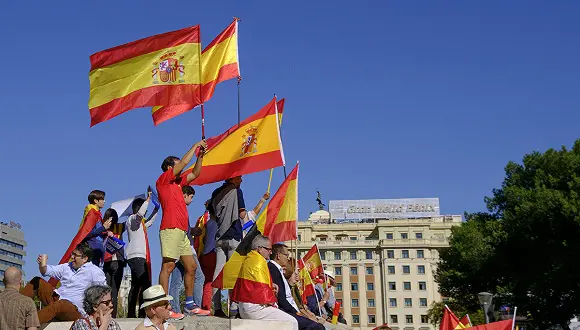By APD writer Wang Peng
US President Donald Trump has started his trip to Asia. As the official website of White House claimed, President Trump will utilize this trip to demonstrate his administration’s commitment to the Indo-Pacific region and to strengthen U.S. alliances and partnerships, as well as address a wide array of strategic issues with foreign leaders.
Trump’s trip will focus on three goals, as the White House has stated: Firstly, strengthening international resolve to denuclearize Democratic People’s Republic of Korea (DPRK); Secondly, promoting a free and open Indo-Pacific region; Thirdly, advancing American prosperity through fair and reciprocal trade.
We have noticed that the term ‘Indo-Pacific’ occurs four times within a short passage no more than 700 words. This abnormal frequency may suggest the great importance of this term and the strategic meaning behind it in the new map of American re-arrangement of power at both regional and global level.
As the White House emphasizes repeatedly, “the President will underscore America’s openness to expanding economic relations with partners across the Indo-Pacific region who share our commitment to free, fair and reciprocal trade”.
In addition, “the President will continue on to Vietnam, where he will deliver his second major address of the trip at the APEC CEO Summit in Da Nang and outline the United States’ vision of a free and open Indo-Pacific region where free, fair, and reciprocal trade, and private sector-led investment and growth generate prosperity and protect the sovereignty of all.”
Here we can see clearly that nearly all the adjectives with ‘Indo-pacific’ are showing hostile to China implicitly to some extent, when we read the White House statement carefully.
For example, international observers’ traditional wisdom about Trump’s personal style and the political preference of his administration is often regarded as ‘de-ideologicalization’, which is said that the Trump Administration, especially on contrary to Obama of Hillary Clinton’s Democratic Administration, only concerns the actual income of American material interest while largely neglects ideological consideration or political values.
However, that is not true. When Trump realized the real value and pragmatic function of ideology and values, this pragmatist businessman-President will probably employ those beautiful rhetoric as a connection to unite his strategic and trade partners in Indo-Pacific who ‘share our commitment to free, fair and reciprocal trade’ as Trump claimed, and turn against the rising China.
Certainly, this diplomatic rhetoric not only encourages Trumps’ regional allies, but also poses a clear threat to China, especially when we link these so-called ‘shared values’ with the opposite side that Western economies often censure China for ‘not being a free-open society’ or threaten to ‘de-recognize China’s as market economy status (MES)’.
During the past four years, we have witnessed that in serving as Minister of Foreign Affairs in the cabinet of Shinzo Abe, Taro Aso proposed the concept of ‘diplomacy of values’ and attempted to construct the ‘arc of liberty and prosperity’ thereupon. Perhaps now Trump is enlightened by his Japanese allies and becomesincreasingly eager to deploy the ‘value’ to distinguish America’s friends and competitors, or even enemies. China, and some other countries in this region without ‘sharing’ American’s values may bear it in their minds.
Wang Peng,
Researcher of APD Institute, Research Fellow at the Charhar Institute and China Institute of Fudan University.
(ASIA PACIFIC DAILY)
 简体中文
简体中文





